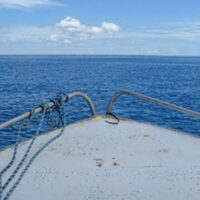The Open Waters Act

The Merchant Marines Act of 1920 is the law in the U.S. Right now, there are border patrol agents scouring the coastlines for foreign-flagged ships delivering foreign parts to U.S. energy companies. The Jones Act and the Merchant Marines Act place restrictions on companies from using foreign parts in the energy industry and place strict requirements on businesses shipping in the U.S. over U.S. waters.
The Jones Act, which was passed in the 1800’s, was designed to protect America’s shipping industry from domestic and foreign threats. It places restrictions on who can be hired to work American vessels, the types of cargo they can deliver, and even on crewmembers and passengers filing lawsuits against the shipping company. Congress is considering a repeal to the centuries-old law that would reduce restrictions on American companies and on American workers including liability limits in mass casualty events. In this article, we’ll discuss some of the potential changes that could occur if the law is passed.
Understanding the squabble
Issues have surrounded the centuries-old legislation for decades now. The provisions under the act were meant to protect a burgeoning U.S. shipping industry that no longer exists. While U.S. shipping does exist, it’s not a large part of our GDP nor does it require vast protections like the ones The Jones Act offers. In other words, it’s considered a “protectionist” piece of legislation that harms U.S. businesses while making the U.S. a less competitive place for commerce. These are arguments typically made by republicans in order to advance free-market principles.
On the other hand, renewed interest in America-first jobs programs are placing increased pressure on both sides of the aisle. Under the Trump campaign, there was fervor surrounding the loss of U.S. jobs to overseas competitors, outsourcing, and other issues that play well with conservative democrats. That has some democrats and even republicans supporting legislation that would prevent foreign-flagged ships from taking jobs away from the U.S. shipping industry.
These rules are partly due to the protectionist impulses of economic nationalists and partly due to fears over terrorism. As it stands, U.S. shipping is impacted by rules that affect the U.S. energy industry. This includes petroleum, natural gas, and other common forms of energy products. It does not, however, include the newest forms of energy products like wind turbines. Wind turbines can still accept foreign parts. Part of the legislation is an effort to close the gap on energy outsourcing due to national security concerns, and the other half of the legislation is easing restrictions on shipping that cost U.S. companies millions annually.
The biggest issue for shipping companies is that it can be difficult to staff your companies with 100% American employees. American companies want the option to hire foreign employees to reduce fines and levies that they say they cannot avoid.
Talk to a Miami Maritime Attorney Today
Miami admiralty & maritime lawyer Michael F. Guilford handles maritime disputes between companies, passengers, and crew. Call today to discuss your issues in more detail and we can begin going over your options today.
Resources:
manufacturing.net/home/news/21578282/ship-hunts-for-violators-of-centuryold-maritime-law
congress.gov/bill/117th-congress/senate-bill/1646/text
